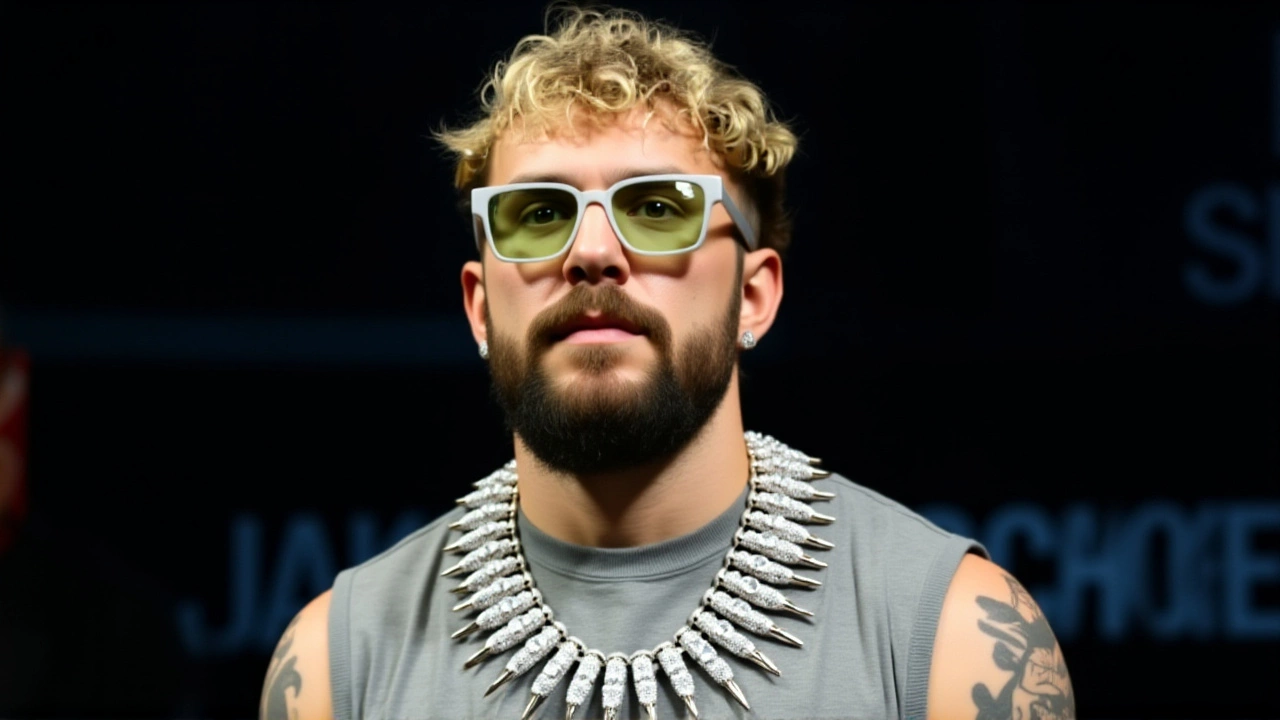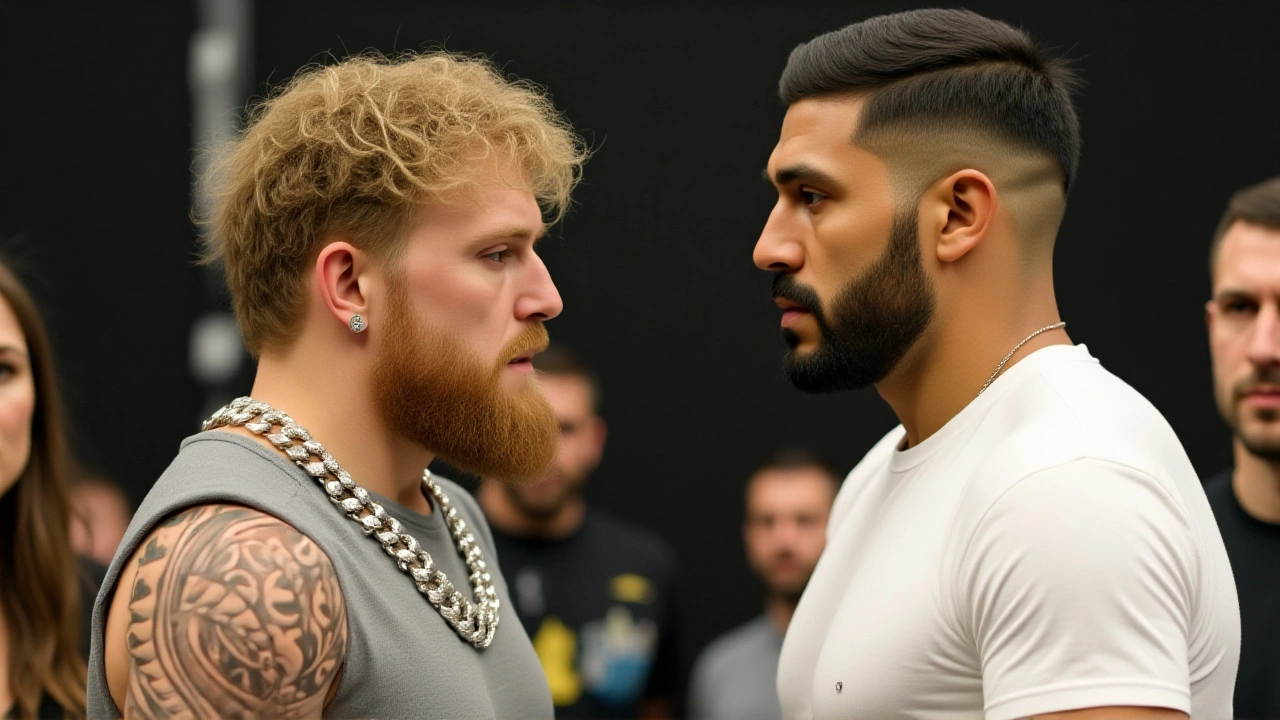When Anthony Joshua stepped onto the stage in Miami on November 21, 2025, the room went quiet. At 6 feet 6 inches and nearly 240 pounds, the former unified heavyweight champion loomed over his opponent — Jake Paul, the 6-foot-1, 154-pound social media phenom who’d spent years turning YouTube views into pay-per-view profits. This wasn’t just another press conference. It was the moment two worlds collided: the disciplined, Olympic-bred elite of professional boxing and the chaotic, viral-powered spectacle of influencer boxing. And the tension? It was electric.
The Faceoff That Broke the Internet
The physical contrast was impossible to ignore. Joshua, still carrying the aura of his Wembley Stadium victory over Daniel Dubois just three months prior on August 28, 2024, stood like a statue. Paul, by contrast, bounced on his heels, grinning, arms wide — the same energy that’s made him a billion-view sensation. A representative at the event, speaking at the 1,164-second mark of the official YouTube stream, claimed Paul was “disrespected and mistreated in the UK” and added, bluntly, “He got a broken knee right now.” The statement sent shockwaves through the boxing community. If true, Paul is stepping into the ring with a significant injury — and against one of the most technically gifted heavyweights of his generation.From Welterweight to Heavyweight: The Impossible Leap
Paul’s journey to this moment is as bizarre as it is unprecedented. Just days before the Miami presser, he was scheduled to fight a 135-pound lightweight opponent — a fight that mysteriously vanished from the calendar. Now, he’s facing a man who’s defended world titles against the likes of Andy Ruiz, Oleksandr Usyk, and, most recently, Dubois. “He was supposed to fight last weekend against a 135-pounder,” a promoter said during the event. “Now he’s fighting a heavyweight king.” That line stuck. Because it’s true: Paul has never competed at heavyweight in a professional bout. His last fight was at 165 pounds. His career record — 10 wins, 1 loss — includes wins over YouTubers, retired MMA fighters, and his own brother, Logan Paul. Joshua, meanwhile, has fought in 31 professional bouts, 28 of them wins, with 22 by knockout. The gap isn’t just size. It’s experience. Depth. Legacy.Failed Deals and Frustrated Plans
Paul didn’t come to Miami by accident. He’s been chasing this fight for months. “Where was that supposed to be?” he asked during the event, referring to a planned bout in Saudi Arabia. “We had a good plan lined up to fight in Saudi Arabia. Get on there big — like not even announce it, but just turn up, ring walk.” He then pivoted to KSI — the British YouTuber and former boxer — whose own high-profile fights with Logan Paul helped launch the influencer boxing boom. “These guys just don’t want to step up to the plate,” Paul said, frustration creeping into his voice. The implication? He’s been turned down by bigger names, and Joshua, despite being a reluctant participant, is now the only viable option left.“I Ain’t Got Nothing to Say to Those People”
When pressed about the skepticism — the memes, the critics, the experts calling this a “circus” — Paul didn’t flinch. “Why am I worried about people that don’t believe in what I’m doing?” he said at the 499-second mark. “I just focus on people that believe in me, that are supporting me. And that’s it.” It’s a mantra he’s used before. But this time, it’s different. This isn’t a fight against a 20-year-old with 10 amateur bouts. This is Anthony Joshua — a man who’s carried British boxing on his back for a decade. The stakes aren’t just about money or clout anymore. They’re about legitimacy. If Paul wins, he rewrites the rules of boxing. If he loses? He’ll still make millions. But the narrative shifts.
Why This Matters Beyond the Ring
This fight isn’t just about two men in gloves. It’s about the future of sport. Traditional boxing has struggled to attract younger audiences. The pay-per-view numbers for Joshua’s last few fights? Flatlining. Meanwhile, Paul’s fights consistently break records — his bout with Logan Paul in 2021 drew over 2 million buys. The UFC and boxing commissions are watching. If this event sells 3 million PPVs, expect a flood of similar matchups: retired NFL players vs. MMA veterans, TikTok stars vs. regional champions. The line between entertainment and sport is dissolving. And Joshua, for all his pedigree, is now the gatekeeper.What’s Next? The Fight Date and the Fallout
The bout hasn’t been officially scheduled yet, but sources close to the promoters suggest late January or early February 2026. Miami’s Hard Rock Stadium or Las Vegas’ T-Mobile Arena are the likely venues. The purse is rumored to be north of $25 million for Joshua, with Paul earning at least $15 million — a staggering sum for a fighter who’s never won a professional title. But the real winner? The streaming platforms. The social media algorithms. The brands. This fight is a marketing machine.And then there’s the knee. If Paul’s injury is real — and he’s been seen limping in recent footage — it could be the deciding factor. Joshua’s power, his timing, his ability to exploit openings… he doesn’t need luck. He needs a target. And if Paul can’t move?
That’s when the real question emerges: Is this boxing? Or is it theater?
Frequently Asked Questions
Is Jake Paul really fighting with a broken knee?
A promoter at the Miami press conference confirmed Paul was fighting with a broken knee, though no medical records have been released. If true, this would be a massive risk — especially against a power puncher like Anthony Joshua. A broken knee limits mobility, balance, and the ability to generate power on footwork-heavy combinations. While Paul has recovered from injuries before, this is the most serious physical challenge of his career.
Why was Jake Paul called the ‘pride of Puerto Rico’ at the press conference?
That reference was a clear error. Jake Paul was born and raised in Cleveland, Ohio, to American parents with no known Puerto Rican heritage. The misstatement likely came from a promotional staffer unfamiliar with his background — a mistake that sparked immediate backlash on social media. It underscores the chaotic nature of the event’s production, where branding sometimes overrides accuracy.
What’s the significance of Anthony Joshua’s last fight against Daniel Dubois?
Joshua’s August 28, 2024, bout against Dubois at Wembley Stadium was his first title defense since reclaiming the WBA and IBF belts in 2023. He won by unanimous decision, but the fight exposed vulnerabilities — particularly his foot speed and stamina under pressure. That’s why many analysts believe this fight with Paul is a calculated risk: a win could revive his legacy, but a loss would end his reign as a top-tier heavyweight for good.
Why did the fight move from Saudi Arabia to Miami?
Negotiations for a Saudi Arabian venue collapsed due to financial disagreements and scheduling conflicts with the country’s boxing federation. Paul’s team reportedly wanted to keep the event low-key — no press, no fanfare — but promoters pushed for a high-profile U.S. location to maximize media exposure. Miami, with its Latin influence and massive boxing fanbase, became the compromise. The venue remains unconfirmed, but the city’s infrastructure makes it ideal for global streaming.
How does this fight compare to KSI vs. Logan Paul?
The KSI vs. Logan Paul fights were cultural phenomena — but they were also between two men of similar size, background, and boxing experience. This matchup is fundamentally different: Joshua is a former world champion with elite technical training; Paul is a self-taught entertainer who’s never fought above 165 pounds. The skill gap is wider than any influencer bout before. If Paul wins, it’s a seismic shift in sports. If he loses? It’s still the biggest payday of his life.
Will this fight change how boxing is marketed in the future?
Absolutely. If this fight breaks PPV records — and early pre-sales suggest it will — promoters will rush to replicate the model: social media stars vs. fading champions, massive hype, minimal traditional training narratives. The line between sport and spectacle is gone. Boxing’s governing bodies may try to regulate it, but the money — and the audience — are too powerful to ignore.
